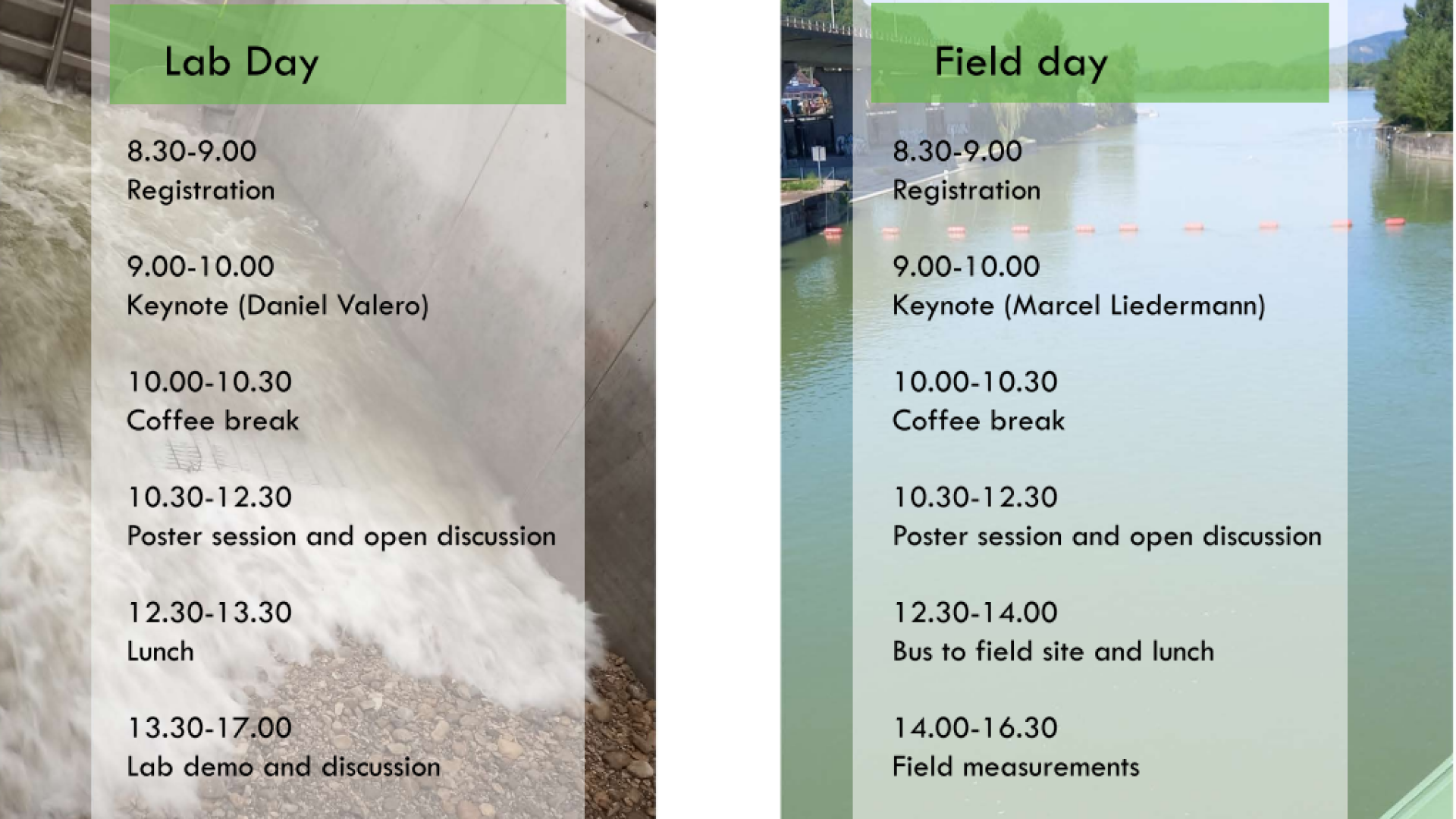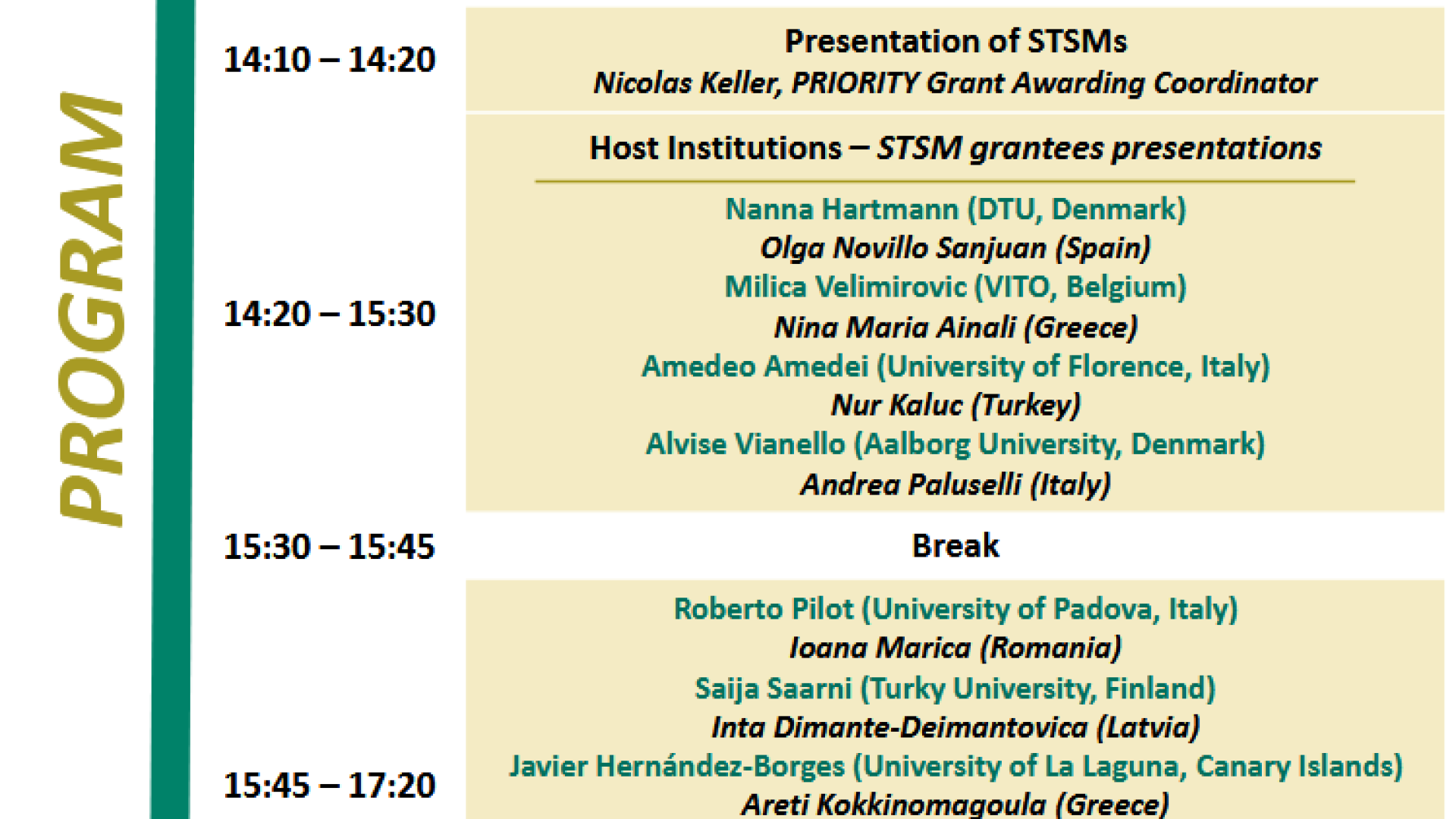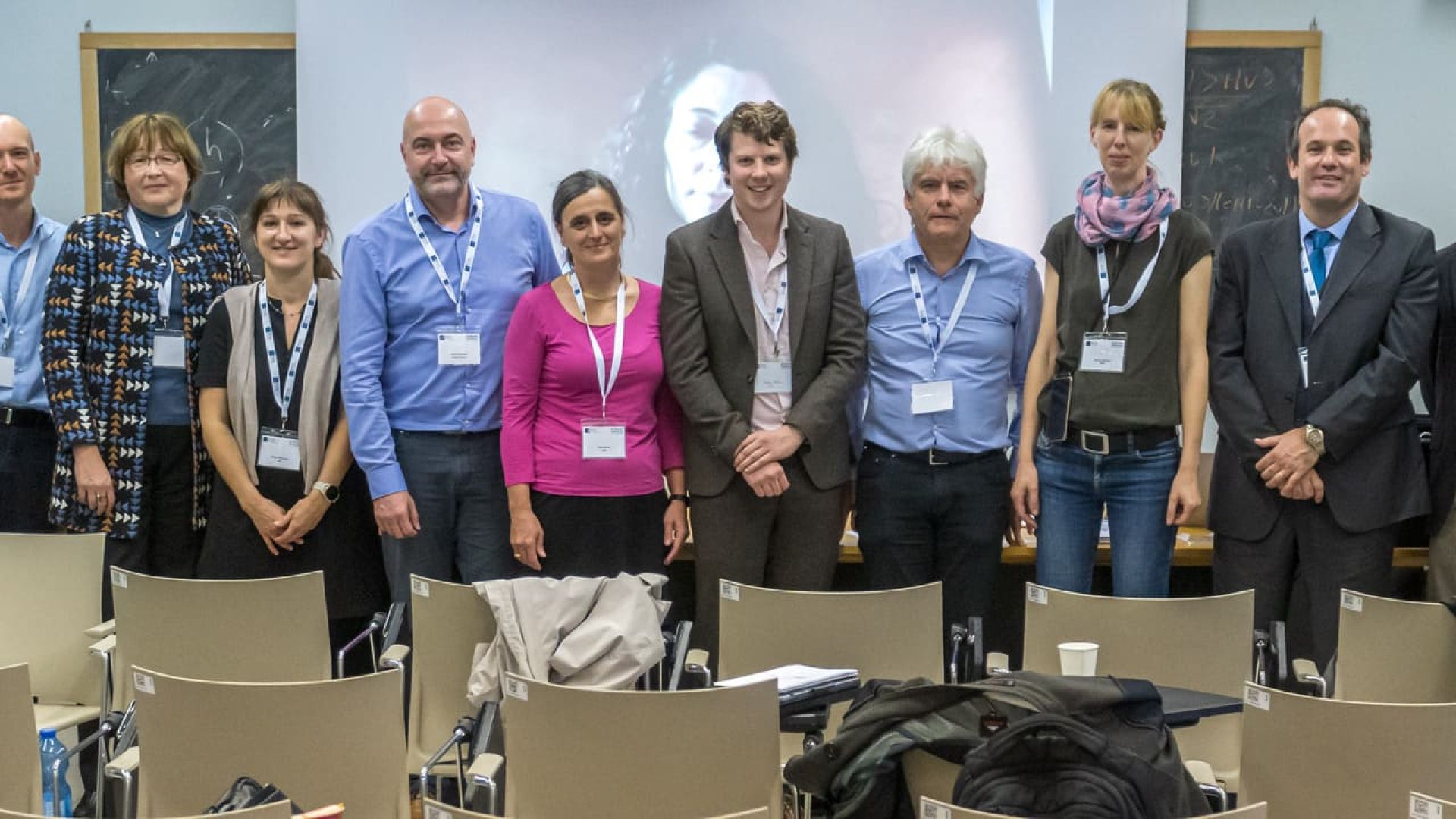Small Training Days 2024 – Summary of Activities
As part of the COST Action CA20101 PRIORITY – GP3 call, we launched the Small Training Days 2024, introducing a fresh and dynamic approach to capacity building within our network.
Departing from the traditional model of large-scale training schools, the initiative offered specialized, interactive, and targeted learning opportunities through a series of small-scale events tailored to the specific needs of each Working Group.
🗓️ Duration: April – September 2024
📍 Format: 1–2-day focused training sessions
🤝 Collaborative design: Between the Action’s Core Group and host trainers
🎯 Objective: Deliver specialized knowledge, foster exchange, and strengthen collaborations across Europe
Key Outcomes
13 events successfully organized
160 participants in total
44 trainers
116 trainees
Wide geographical spread across COST countries, reflecting the inclusiveness and diversity of our network.

Each event provided a high-impact learning experience, enabling participants to develop new skills, exchange ideas, and build long-lasting collaborations within a focused and interactive environment.
The organized events were:
M3 Plastics: Measuring, Monitoring, Modelling of plastics in flowing waters, Vienna, Austria
Basic concepts of metrology and standardization, Ljubljana, Slovenia
Date: 16. and 17. April 2024
Number of trainees: 10
Training facility: University of Ljubljana, Faculty of Chemistry and Chemical Technology, Ljubljana, Slovenia
Trainers:
- Dr. Thomas C. Meisel, General and Analytical Chemistry, Montanuniversität Leoben (MUL), Austria
Description: The training event aims to introduce basic concepts of metrology and to familiarize participants with the usefulness and simple approaches of the concept and estimation of measurement uncertainty. The production and proper use of reference materials is also an integral part of this training.
As most participants are likely to have only a basic knowledge of statistics and metrology, emphasis will be placed on theory and concepts. However, this part will be broken up by tasks in small groups. One of the tasks will be to critically scrutinize publications for their metrological and scientific value.
The second part of the training event will deal with the different approaches to measurement uncertainty calculations. Here, measurement uncertainty budgets will be applied to practical examples using easily accessible tools.
Droplet emulsion technology for novel high-throughput micro- and nanoplastic research, Tallin, Estonia
Date: 2. and 3. May 2024
Number of trainees: 4
Training facility: Tallinn University of Technology, Department of Chemistry and Biotechnology, Tallinn, Estonia
Trainers:
- Simona Bartkova, Tallinn University of Technology (TalTech), Department of Chemistry and Biotechnology
- Natalja Buhhalko, Tallinn University of Technology (TalTech), Department of Marine Systems
- Kaiser Pärnamets, Tallinn University of Technology (TalTech), Department of Electronics
- MSc student Giulia Pagano, Università di Pisa, Dipartimento di Chimica e Chimica Industriale
Description: Droplet emulsion technology involves generating droplets that act like small test tubes. This is done by manipulating and controlling fluids in immiscible phases, such as water and oil. The technology has already enabled miniaturization and automation in a broad range of research fields, allowing generating, and analyzing hundreds of thousands to millions of pL-nL sized droplets. One of the major benefits is being able to encapsulate materials of interest and study them in a controlled and high-throughput matter. This makes droplet emulsion technology an ideal solution for studying the complex nature of micro- and nanoplastic (MP/NPs) interactions with e.g. microorganisms and other environmental factors. The dangerous effects of MP/NPs pollution in our environment, such as spreading additives and pollutants, and harming organisms have already been proven, but more research on this intricate subject is crucial. This training will offer an overview and hands on experience in droplet emulsion technology for novel high-throughput micro- and nanoplastic research applications. Main goal is to allow participants to gain knowledge on this technology and help them to develop possible innovative, yet also user-friendly, droplet emulsion-based solutions for their own research projects. The training will mainly cover, but will not be limited to, (i) droplet microfluidics chip construction, (ii) encapsulation of biological material and microplastic into nL sized water-in-oil droplets, (iii) imaging, and (iv) image analysis.
Mastering Microplastics and Related Chemicals: 2-day Training in Extraction and Analysis Techniques for Water, Soil, and Human Samples, Porto, Portugal
Date: 7. and 8. May 2024
Number of trainees: 5
Training facility: REQUIMTE/LAQV, Instituto Superior de Engenharia, Instituto Politécnico do Porto, GRAQ Laboratory – Chemical Engineering Department, Porto, Portugal
Trainers:
- Dr. Virgínia Cruz Fernandes, PhD, REQUIMTE/LAQV, Instituto Superior de Engenharia do Porto, Instituto Politécnico do Porto
- Sara Sousa, PhD, REQUIMTE/LAQV, Instituto Superior de Engenharia do Porto, Instituto Politécnico do Porto
- MEng Diana Rede, PhD student, REQUIMTE/LAQV, Instituto Superior de Engenharia do Porto, Instituto Politécnico do Porto
- MSc Silvia Martinho, PhD student, REQUIMTE/LAQV, Instituto Superior de Engenharia do Porto, Instituto Politécnico do Porto
- MSc Adriana Vieira dos Santos, PhD student, REQUIMTE/LAQV, Instituto Superior de Engenharia do Porto, Instituto Politécnico do Porto
Description: Join us for a 2-day training program designed to equip participants with essential skills and knowledge in the extraction and analysis of microplastics and related chemicals from various types of samples.
Day 1 will kick off with an insightful session exploring the world of microplastics and related chemicals, covering their types, sources, and environmental impacts. Participants will then delve into an overview of analytical techniques for extraction and analysis, gaining valuable insights into the challenges and opportunities associated with these methods. The afternoon session will feature a hands-on workshop, where participants will learn laboratory protocols for extracting microplastics and related chemicals from water, soil, and biological samples, enhancing their practical skills in the process.
On Day 2, participants will engage in a comprehensive hands-on workshop focusing on techniques for analyzing microplastics and related chemicals. From gas chromatography to Raman spectrometry, microscopy, and surface tension measurements, participants will gain valuable experience with a range of analytical tools. The day will also include dedicated networking sessions, providing opportunities for participants to share experiences, discuss insights, and foster collaboration. The program will conclude with a Q&A session and closing remarks, allowing participants to seek clarification on topics covered and further consolidate their learning.
Don’t miss this opportunity to advance your expertise in microplastics and related chemicals analysis and contribute to addressing pressing challenges.
Spectroscopic recognition of micro/nano- plastics and pollutants by Raman spectroscopy combined with Optical and Acoustic Trapping, Messina, Italy
Date: 10. May 2024
Number of trainees: 6
Training facility: CNR – Istituto per i Processi Chimico-Fisici, sez. Messina, Messina, Italy
Trainers:
- Dr Maria Grazia Donato, CNR-IPCF
- Dr Antonino Foti, CNR-IPCF
- Dr Silvie Bernatova CNR – IPCF
- Dr Alessandro Magazzù CNR-IPCF
Description: Optical Tweezers and Acoustic Tweezers (permit to trap and manipulate small particles in liquid and in air, exploiting light and sound waves, respectively. The combination with Raman spectroscopy enables chemical analysis of micro/nanoparticles in liquid (10 µm to 300 nm) or levitated air (mm scale to 100 µm solid particles, µL droplets).
The aim of this 1-day course is to train researchers to the use of Optical and Acoustic Tweezers techniques in combination with Raman spectroscopy for the detection and chemical analysis of environmental pollutants, with focus on microplastics and nanoplastics. The training will be developed in 1 day (9 AM to 6 PM) and will foresee short introductory courses on “Raman spectroscopy,” “Optical forces and optical trapping,” “Integration of Optical Tweezers with microfluidics and Raman spectroscopy,” “Acoustic Trapping: principles and applications in combination with Raman spectroscopy”. During the experimental session, attendees will practice with Optical Raman Tweezers and Acoustic Raman Tweezers setups. The trainers will first illustrate the implementation of the experimental setups. Then they will show how to load the samples using conventional or microfluidics devices, how to perform the trapping and manipulation of the particles, and how to carry out Raman analysis of the trapped objects. Finally, procedures for data analysis and comparison with standard databases will be explained. Experiments will be mainly focused on (micro)plastic materials. Participants who will be able to prove that they have attended safety courses on laser radiation and the use of laser beams will be allowed to carry out hands-on experiments under the supervision of the trainees.
Training on Evaluating Micro/Nanoplastics Effects on Human Immune System, Firenze, Italy
Date: 16. and 17. May 2024
Number of trainees: 3
Training facility: Laboratory of Immunology, Department of Experimental and Clinical Medicine, University of Florence, Florence, Italy
Trainers:
- Amedeo Amedei, Department of Experimental and Clinical Medicine, University of Florence.
- Elena Niccolai, PhD, Department of Experimental and Clinical Medicine, University of Florence.
- Giulia Nannini, PhD, Department of Experimental and Clinical Medicine, University of Florence.
Description: The Laboratory of Immunology at the Department of Experimental and Clinical Medicine, University of Florence, Italy, is hosting a two-day training session on May 16-17, 2024. Led by esteemed trainers Professor Amedeo Amedei and his team, this specialized program aims to provide in-depth knowledge and practical skills for assessing the impact of micro and nanoplastics (N/MPL) on the human immune system.
With a maximum of three participants, this intensive training will combine theoretical discussions with hands-on activities to ensure comprehensive learning. Participants will delve into various aspects, starting with an overview of N/MPL and their potential effects on immunity. Practical sessions will focus on human immune cell culture, covering proper handling, maintenance, and culture conditions.
Moreover, attendees will receive training on cellular assays, including the MTT assay for viability assessment and flow cytometry for cytotoxicity and functional analysis. Advanced techniques such as Luminex and ELLA systems will be introduced for studying the inflammatory response. Additionally, the training will include an overview of Nanostring technology for gene transcription profiling, aiding in the understanding of adverse outcome pathways associated with immune responses.
Overall, this training program offers a unique opportunity for participants to enhance their understanding of the complex interactions between micro/nanoplastics and the human immune system, equipping them with valuable skills to contribute to this critical area of research.
Agricultural waste plastics: impact and in situ treatment, Chania, Greece
Date: 17. May 2024
Number of trainees: 6
Training facility: Technical University of Crete, Greece
Trainers:
- Nicolas Kalogerakis, TU-Crete
- Evdokia Syranidou, TU-Crete & Cyprus University of Technology
- Katerina Karkanorachaki, TU-Crete
Description: Plastic contamination of agricultural soils was only recently subject to investigations although it represents a significant amount (14%) of the global plastic pollution. Plastics are extensively used in agriculture and application of sewage sludges as fertilizer, the use of compost, the application of plastic mulching and packaging, the irrigation with untreated waste and surface water, and atmospheric fall out can be sources of contamination. However, the plastic introduction routes also depend on the geographical region and the characteristic agricultural practises and target crops. Little is known about the effect of fossil based and bioplastics on the soil ecosystem and crops productivity. A one-day training workshop is proposed to inform the trainees about the sources and fate of (bio)plastics in agricultural fields in the Mediterranean region.
The one-day-training will be divided into the theoretical background (in the morning) followed by two field trips.
Soil Microplastic Analysis Training for Early Career Scientists and PhD Students, Adana, Türkiye
Date: 23. and 24. May 2024
Number of trainees: 10
Training facility: Çukurova University Central Laboratory, Sarıçam/Adana, Turkey
Trainers:
- Dr. Sedat Gündoğdu, Faculty of Fisheries, Department of Basic Sciences, Çukurova University, Adana, Türkiye
- Assist Prof. Dr. Muhittin Onur Akça, Faculty of Agriculture, Department of Soil Science, Ankara University, Ankara, Türkiye
Description: Global plastics production increased from 1.7 million tonnes in 1950 to 368 million tonnes in 2019. Global plastic production is estimated to reach 33 billion tonnes by 2050. However, only 9% of the plastic produced since 2015 has been recycled, 12% has been incinerated and the remaining 79% has been thrown into the environment indiscriminately. Plastics can remain in their environment for centuries due to their resistance to degradation or they can be transported by turning into smaller plastic particles. Plastic wastes can turn into microplastics smaller than <5 mm in physical, chemical, and biological decomposition/fragmentation processes over time. Although the majority of studies have focused on microplastic pollution in aquatic environments and this has created the perception that microplastic pollution is a problem of aquatic environments, studies are showing that the soil ecosystem can contain more microplastics than the aquatic ecosystem. Compared to the aquatic ecosystem, it has been reported that the amount of MP released into terrestrial ecosystems is 4-23 times higher than in water, but the nature of microplastic pollution in the soil in many regions has not yet been fully revealed. This situation reveals that microplastic pollution in soil is still a new research area compared to aquatic environments.
Although the number of studies on microplastic pollution in the soil is increasing, the methods used in these studies are difficult to apply, expensive, and still lack any standardization. This short training program will teach a simple, easy-to-apply, and inexpensive microplastic extraction method to postgraduate or early-career researchers. In this two-day training program, all processes including extraction and instrumental analysis of samples from soil sampling will be explained.
Identification of microplastic composition and presence of additives through FTIR (and µFTIR) and Pyrolysis-GC-MS, Santa Cruz de Tenerife, Spain
Date: 6. and 7. June 2024
Number of trainees: 10
Training facility: University of Laguna, Faculty of Science, Chemistry Department (La Laguna), San Cristóbal de La Laguna. S/C de Tenerife, Spain
Trainers:
- Javier Hernández-Borges, Full Professor, University of La Laguna, Department of Chemistry
- Daura Vega-Moreno, Associate Professor, University of Las Palmas de Gran Canaria, Department of Chemistry
- Javier González-Sálamo, Research Associate, University of La Laguna, Department of Chemistry
- Alvise Vianello, Associate Professor, Aalborg University, Department of the Built Environment
Description: During this two-day short training course, students will gain basic knowledge on different techniques uses for the identification of microplastics composition (i.e. Fourier Transform Infrared Spectroscopy (FTIR), microFTIR and pyrolysis-gas chromatography-mass spectrometry (Pyr-GC-MS)) as well as for the determination of plastic additives (Pyrolysis-GC-MS). Students will also gain basic knowledge on quality control and quality assurance measures to avoid sample contamination. The course, which is directed to postgraduates with a Science related degree (i.e. Chemistry, Biology, Environmental Sciences, Physics, Oceanography, etc.) at their initial stage of their PhD careers, will be held at the laboratories of the Analytical Chemistry Division of the Department of Chemistry at the University of La Laguna (Canary Islands, Spain). It will include a theoretical and a practical part as well as several socialization activities.
Training on micro- and nanoplastics in vitro toxicological assessment: unveiling the human health impacts, Aveiro, Portugal
Date: 19. and 20. June 2024
Number of trainees: 5
Training facility: Centre for Environmental and Marine Studies (CESAM), University of Aveiro, Aveiro, Portugal
Trainers:
- Helena Oliveira, Centre for Environmental and Marine Studies (CESAM) and Department of Biology, University of Aveiro, 3810-193 Aveiro, Portugal
- Verónica Bastos, Centre for Environmental and Marine Studies (CESAM) and Department of Biology, University of Aveiro, 3810-193 Aveiro, Portugal
- Fernanda Rosário, Centre for Environmental and Marine Studies (CESAM) and Department of Biology, University of Aveiro, 3810-193 Aveiro, Portugal
Description: The goal of this training school is to explore the impact and risks of micro- and nanoplastics (MNPs) on human health within the framework of Working Group 1 (WG1). This comprehensive training will provide participants with theoretical and practical insights into in vitro cell culture and toxicological effects of exposure to MNPs.
Day 1: Morning Session: Lectures and Case Studies
- Understanding the basics: In-depth exploration of the fundamental aspects of micro- and nanoplastics (MNPs).
- Overview of the toxicological effects on human health: Identification of challenges and knowledge gaps regarding the toxicological effects of MNPs on human health.
- Case studies and discussion of key research challenges.
- Introduction to in vitro cell culture techniques: focusing on cell culture techniques tailored for MNPs toxicity testing.
Afternoon Session: Hands-on training and outdoor activities
- Hands-on Training on Cell Culture and In Vitro Toxicology. In this hands-on session, trainees will actively participate in cell counting, culturing, seeding and MNPs exposure. This practical session ensures a comprehensive learning experience in the use of human cells to evaluate the toxicological effects of MNPs.
- Outdoor Activity: Boat trip through Aveiro’s canals aboard the traditional Moliceiro boat., followed by dinner at a typical restaurant.
Day 2: Morning session: Practical Training on toxicity assessment methods
- Practical application of cell-based toxicological assays designed to assess the potential toxic effects of substances such as MNPs, including WST, LDH and ROS assays. Learn how to interpret results and draw meaningful conclusions.
Afternoon Session: Group presentation and hike
- Group presentation and discussion: Participants will present their findings and engage in insightful discussions. Collectively draw conclusions and explore avenues for future research.
- Optional Afternoon Hike: Those inclined for exploration can join an optional afternoon hiking trails to explore the typical salt pans of Aveiro, enjoying the scenic beauty of the surroundings.
Conclude the two days with a wealth of knowledge, practical skills, and connections. Join us on this journey of Micro- and Nanoplastics toxicology, where theoretical insights meet hands-on expertise.
Different environmental compartments samples purification and microplastic particles analysis by ATR-FTIR and LDIR, Riga, Latvia
Date: 19. and 20. August 2024
Number of trainees: 2
Training facility: Latvian Institute of Aquatic Ecology, Riga, Latvia
Trainers:
- biol. Inta Dimante-Deimantovica, senior research, head of microplastics laboratory, Latvian Institute of Aquatic Ecology
- Envir. Marta Barone, research assistant, PhD student, Latvian Institute of Aquatic Ecology
Description: We are inviting up to 2 PhD or MSc students to visit Latvian Institute of Aquatic Ecology (LIAE) for a saturated and knowledgeful 2-day training. We offer a holistic insight into microplastics research – from filed work sampling equipment demonstration and microplastics samples processing in the laboratory, to samples analysis.
LIAE has all necessary equipment for acquiring samples from different environmental compartments, a separate microplastics laboratory for samples treatment, as well as instruments needed for samples analyses (e.g. Thermo Fisher Scientific Nicolet iS20 Fourier Transform Infrared (FTIR) spectrometer with Attenuated Total Reflection (ATR) accessory to analyse MPs particles larger than 500 µm and quantum cascade laser (QCL) spectroscopy based Agilent Laser Direct Infrared (LDIR) 8700 Chemical Imaging System to analyse MPs particles smaller than 500 µm).
The agenda for the two days will consist of theoretical presentations and hands-on activities (sampling, samples treatment and analysis) to acquire specialized knowledge and skills needed for microplastics studies. This will be accompanied with a social event on the end of the first day.
We especially invite participants from institutions where such facilities (samples purification laboratory, LDIR and/or ATR-FTIR devices) are not available.
Sub-micron IR spectroscopy for Advanced Microplastic Analysis, Dublin, Ireland
Date: 28. and 29. August 2024
Number of trainees: 5
Training facility: School of Biosystems and Food Engineering, University College Dublin, Ireland
Trainers:
- Junli Xu, Assistant Professor, University College Dublin, Ireland
- Aoife Gowen, Professor, University College Dublin, Ireland
- Xiaohui Lin, Postdoctoral Researcher, University College Dublin, Ireland & Ghent University, Belgium
- Abhrajyoti Tarafdar, Assistant Lecturer, Technological University Dublin, Ireland
Description: This two-day training aims to equip the participants with the necessary skills for comprehensive microplastic analysis. The training will leverage a cutting-edge Optical Photothermal Infrared Spectroscopy (OPTIR) instrument with a spatial resolution of 500 nm. Through a combination of theoretical insights and hands-on experience, participants will gain proficiency in utilizing OPTIR for microplastic analysis. The training will commence with two concise lectures covering the fundamental principles of OPTIR and contemporary strategies for microplastic analysis. Subsequently, participants will actively engage with the OPTIR instrument, utilizing it for data collection to assess various microplastic samples placed on aluminium oxide filters. Participants will learn data processing techniques using computer vision and multivariate data analysis (such as principal component analysis) to process the collected data and present their results in terms of polymer types, abundance, shapes, size, and circularity of microplastics. A key focus of the program is to enhance participants’ ability to comprehend and interpret microplastic analysis results. Networking opportunities will also be integrated, providing a platform for participants to connect with fellow professionals, share experiences, and establish valuable connections within the dynamic field of microplastic analysis. In summary, this training programme will provide an in-depth understanding of OPTIR principles and microplastic analysis procedures covering experimental techniques, and multivariate data analysis for imaging and spectroscopy processing, making it particularly beneficial for individuals pursuing advanced studies and research in these specialized areas.
Eco-Microbiology Deep Dive: Molecular Techniques for Screening Plastic-Related Bacteria, Piacenza, Italy
Date: 9. and 10. September 2024
Number of trainees: 4
Training facility: Department of Food Science and Technology for a Sustainable Agro-Food Chain (DISTAS), Microbiology Area, Università Cattolica del Sacro Cuore (UCSC), Piacenza, Italy
Trainers:
- Edoardo Puglisi, Università Cattolica del Sacro Cuore
- Francesca Bandini, Università Cattolica del Sacro Cuore
- Filippo Vaccari, Università Cattolica del Sacro Cuore
Description: The training activity will provide a general introduction on plastic-related microorganisms, with a focus on molecular and bioinformatic techniques for studying them. The activities will include:
- Overview and Importance of plastics in in Ecosystems.
- Bacteria in Plastic Degradation: Molecular Mechanisms.
- Molecular Tools in Studying Plastic Microbiology
- Specific Genes in Plastic Degradation and Pathogenic Indicators.
- DNA Extraction and Quality Control techniques
- Next-Generation Sequencing (NGS) and its Applications
- Applications of NGS in Studying Plastic Microbiomes.
- Introduction to Bioinformatics Tools for Sequence Analysis.
- Interpreting Results: Understanding the Microbial Landscape of Plastics.
Attendees will gain an overall understanding of the ecology of plastic-dwelling microorganisms as well as the techniques to study them.






